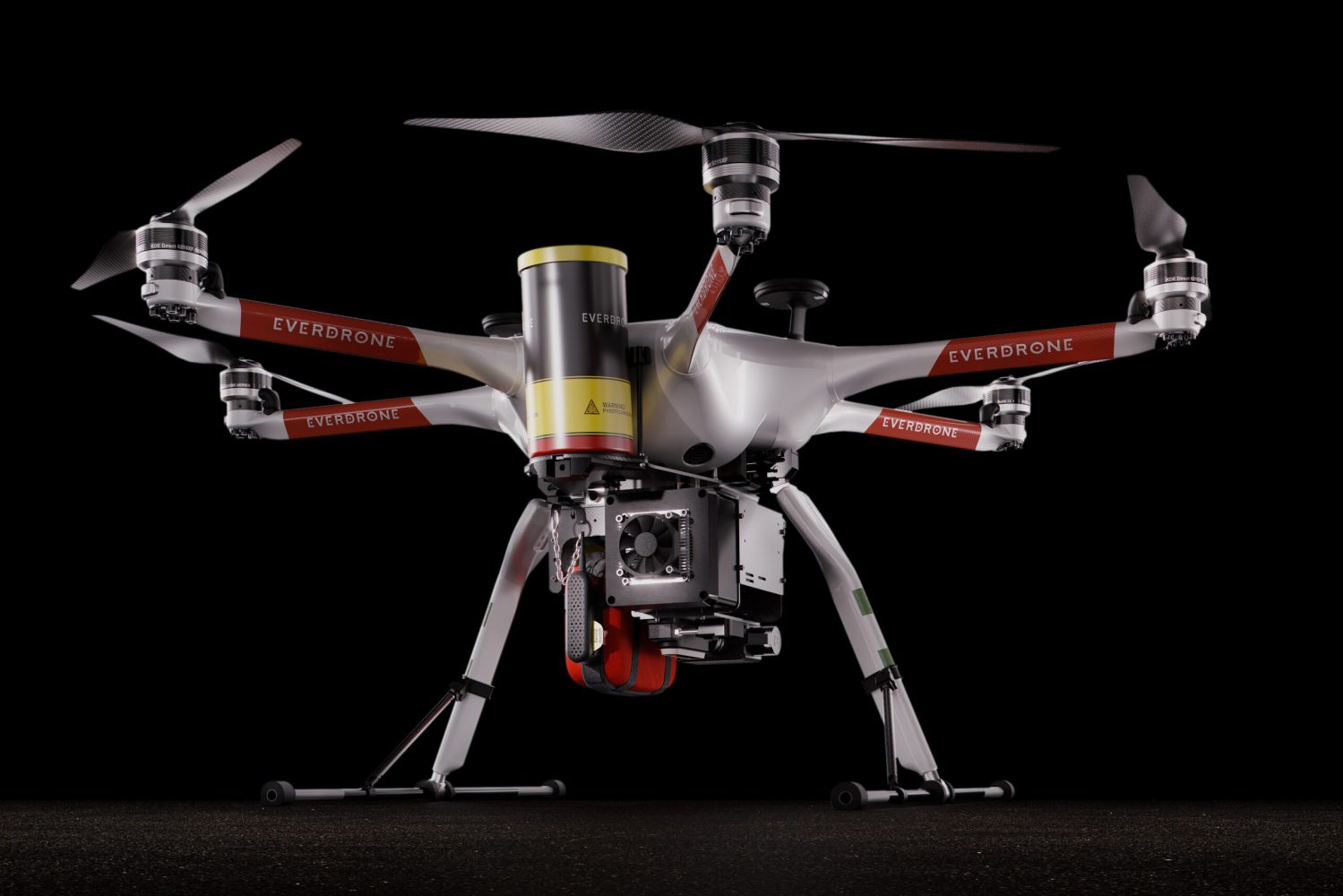
Swedish medical drone specialist Everdrone is upgrading its aerial first response capabilities with the launch of its E2 drone, a craft designed to accelerate, diversify, and improve the critical care provided in emergencies.
Everdrone says tech enhancements featured in the new E2 UAV not only provide greater speed in the arrival of airborne medical assistance, but also permit first response experts to identify and advise the best treatment according to varying emergency situations. The company is now offering those capacities to partners and clients through a package it’s calling First on Scene.
The innovation starts with the startup’s E2 drone, which is designed to take flight within a mere 15 seconds after calls for urgent first response aid come in. The Everdrone craft can then fly to destinations at a maximum speed of 23 m/s – an increased velocity it can maintain in foul weather conditions and winds of up to 10 m/s.
Those gains in deployment and flight time improve what previous testing – and the company’s own work transporting life-saving defibrillators (AEDs) in live scenarios – has shown to be considerably faster arrival of emergency assistance using UAV than traditional ground transportation.
Once on site, meanwhile, the E2 drone offers a broader range of potential treatments with its larger, more diversified, and customizable medical payloads. Under Everdrone’s First on Scene solution, those MediKits are paired with onboard LiveView cameras transmitting real-time high-resolution and IR images to medical experts remotely overseeing first response intervention.
The upshot of Everdrone’s new E2 capabilities, says company CEO Mats Sällström, is drone arrival times to medical emergencies averaging just two minutes, and providing better-adapted first response treatment to individual illnesses.
“The advantages the E2 drone and its increase in payload capability make possible are massive,” says Sällström. “The LiveView capability offers first responders the information needed to make critical assessment decisions that will help with prioritization, and increase the safety of on-site responders. To this, we add the possibility of direct deliveries of anything from AEDs to EPI pens and anti-bleeding kits, or other vital medical equipment.”
The improvements represented by the E2 and First on Scene capacities are the fruits of Everdrone’s experience and open-ended development of drones in first response specialization.
Since it began delivering AEDs by air in 2020 – resulting in the first cardiac victim ever saved by drone in 2022 – the company has successfully flown simulated emergency missions of multiple UAVs from up to 800 kilometers away. It more recently earned regulator approval to expand its activity across Sweden, and has continued pursuing its work in other nations.
Included in that international activity is Everdrone’s cooperation with UK partner Air Ambulance Charity Kent Surrey Sussex (KSS), which is now preparing to integrate the E2 drone and First on Scene solution into its array of first response assets.
“The combination of live-view and flexible emergency delivery capabilities will not only allow us to provide time critical assistance to a broader range of patients, but will also potentially help our service to pre-plan and scale responses effectively – all of which (having) the potential to lead to improved outcomes for our patients,” said KSS executive direction Leigh Curtis. “The multi-purpose drone is one of these innovations which has the potential to add immense value to the service we can provide to our patients.”
FTC: We use income earning auto affiliate links. More.



Comments